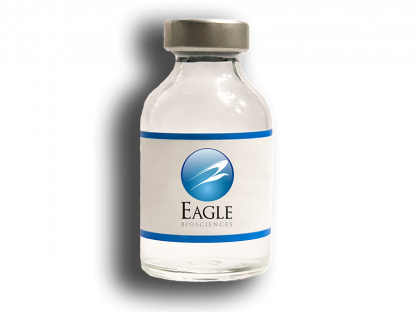Human Recombinant Alpha Synuclein Oligomers (Kinetically Stable)
The Human Recombinant Alpha Synuclein Oligomers (Kinetically Stable) Are For Research Use Only
Specificity: N/A
Species: Human
Expression System: E. coli
Buffer: PB pH 7.4
Storage Temperature: -80ºC
Alternative Names: Alpha synuclein protein, Alpha-synuclein oligomer, Alpha synuclein protein oligomer, Alpha-synuclein protein, Non-A beta component of AD amyloid protein, Non-A4 component of amyloid precursor protein, NACP protein, SNCA protein, NACP protein, PARK1 protein, Alpha synuclein oligomers, Alpha Synuclein Protein Oligomers, SYN protein, Parkinson’s disease familial 1 Protein
Product manufactured in Canada by StressMarq.
Scientific Background
Our kinetically stable oligomers of alpha-synuclein are generated without an inducer or inhibitor and remain stable for at least 2 weeks at 37oC. They present as globular structures under TEM, demonstrate toxicity in rat primary dopaminergic neurons, and induce Parkinson’s-associated alpha-synuclein phosphoserine 129 pathology. These oligomers have been previously characterized as globular, cylindrical structures with a betasheet structure intermediate between monomers and fibrils, and were demonstrated to have a higher toxicity to neurons than alpha-synuclein fibrils (1,2). Alpha-Synuclein (SNCA) is expressed predominantly in the brain, where it is concentrated in presynaptic nerve terminals (3). Alpha-synuclein is highly expressed in the mitochondria of the olfactory bulb, hippocampus, striatum, and thalamus (4). Functionally, it has been shown to significantly interact with tubulin (5), and may serve as a potential microtubule-associated protein. It has also been found to be essential for normal development of the cognitive functions; inactivation may lead to impaired spatial learning and working memory (6). SNCA fibrillar aggregates represent the major non-A-beta component of Alzheimer’s disease amyloid plaque, and a major component of Lewy body inclusions, and Parkinson’s disease. Parkinson’s disease (PD) is a common neurodegenerative disorder characterized by the progressive accumulation in selected neurons of protein inclusions containing alpha-synuclein and ubiquitin (7,8).
Related Products
Active Human Recombinant Gamma Synuclein Protein Preformed Fibrils (Type 1)
Active Human Recombinant Truncated Tau Fragment (AA297-391) (dGAE) Protein Monomer
Active Rat Recombinant Alpha Synuclein Protein Preformed Fibrils


